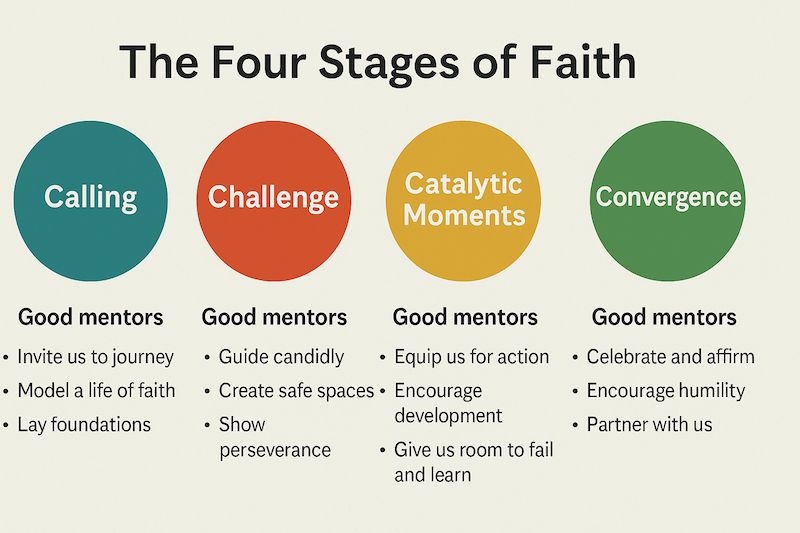Beaten by the False Gospel of Busyness
One of my favorite quotes comes from Kurt Vonnegut in
A Man Without a Country. Vonnegut remarks, “Progress has beat the heck out of me” (Vonnegut 2005, 56). I feel like that.
We are swept up into a sea of busyness for progress through technology, thought, and consumerism.
We see busyness as progress, and progress as happening as a result of busyness. As some authors described in
Everyday Theology, “The business of America is busyness” (Vanhoozer 2007, 155).
More than ever, it feels like our days are busy with tasks, expectations, and ought-tos. As a result, progress has beaten the heck out of us and left us and our schedules without margin and rest, meditation, and prayer.
Sometimes we feel like busyness is next to godliness, too. It’s not. Actually, it’s a false gospel. Being busy for God won’t bring you closer.
Busyness Is Not the Same as Productivity
A few weeks ago, in
Dirty Glory by
Pete Greig, I read a line that hammered me: Greig remarks, “As Christian leaders we can often be busier and far less fun than Jesus” (Greig 2016, 286).
And he is right. Far too often, we are busier than Jesus is or was.
In our culture, being busy is seen as a good thing. We view it as a means of getting ahead, being recognized, and achieving our goals. But as a pastor’s coach, and my friend, Dave Jacobs, has asked, “Just because you’re busy does that mean you are productive?” (Jacobs 2017, 5–6).
Ask yourself. Are you more productive as a result of your busyness?
The Psychology Department at the
University of Michigan has stated that being busy is actually not making us more productive. They write, “Being busy has somehow become a badge of honor. The prevailing notion is that if you aren’t super busy, you aren’t important or hard-working. The truth is, busyness makes you less productive.”
Progress has beaten the heck out of us.
Yet, we keep our lives busy with tasks, expectations, and ought-tos.
Our schedules have no margin anymore.
We aren’t actually accomplishing anything.
Wrestling Personally with Busyness
I know, because I wrestle with this
myself. The reason I sign every email, “in pursuit of a quiet life,” is that I am reminding myself not to be too busy, and that is not the goal. I need to confess this a hundred times a day to get it into my thick skull.
Statistics say we all feel this. “Through the last forty years, between 70% and 80% of Americans have consistently indicated they sometimes or always feel rushed” (Vanhoozer 2007, 155–156).
Being busy is not actually accomplishing anything of value for my family, for me, or my relationship with God. In fact, science has shown how the stress of being busy has adverse effects.
The Mental and Physical Cost of Busyness
Few would disagree that excessive busyness can lead to stress, anxiety, sleep problems, and even burnout. However, we keep swept up in it without a full ownership of what it is doing to us.
According to
VeryWell Mind, medical research indicates that excessive busyness can have a significant impact on physical health, often triggering or exacerbating conditions such as muscle tension or pain, restlessness, insomnia, headaches, inflammation, weakened immune function, fatigue, changes in sex drive, digestive problems, and even cardiovascular disease.
Yikes. Busyness is killing us mentally and physically.
The Spiritual Cost of Busyness
However, is it also affecting us spiritually?
In Everyday Theology, the authors point out, “Those who practice this busyness, who implicitly define themselves in terms of how much they do are only a short step away from denying the gospel. Call it justification by busyness” (Vanhoozer 2007, 164).
Busyness deceives us into thinking we’re accomplishing much, even spiritually, yet it often leaves us spiritually unproductive, distracted from prayer, presence, and the deeper work God longs to do in us, with us, and through us.
This is why the scriptures call us to make it our ambition to lead a quiet (still) life, as Paul says in
1 Thessalonians 4:11–12.
I’ve never come across the Phillips translation before, but when Paul instructs the Thessalonians to lead a quiet life, Phillips renders it as “have no fuss.” The NLT instead calls us to live a “peaceful life.” I would also
add that the word implies cultivating a sense of stillness and calmness in our lives.
This sort of no-fuss, still, peaceful, and quiet life is a resistance against busyness. And, it is throughout the whole witness of scripture as something that affects us.
A Biblical Vision of Stillness
Paul tells Timothy something similar: “Live peaceful and quiet lives in all godliness and holiness” (
1 Timothy 2:1–2).
Paul models a way of contentment in all things for the Philippian church, a way that is “content,” not busy, regardless of “the circumstances” (
Philippians 4:11).
Later, Paul will tell the church in Thessalonica that some are not busy with the right things, like providing for their families; instead, they have become busybodies. The word for busybody means wasting labor on other things, like other people’s “stuff.”
This sort of busyness is an anxiety, not a good practice. It is an identity we have let define us.
This is the kind of anxiety Paul says, “Do not be anxious about anything, but in every situation, by prayer and petition… present your requests to God” (
Philippians 4:6–7).
But this is nothing new under the sun. The writer of Ecclesiastes, after trying to find achievement and notoriety, remarks, “What do people get for all the toil and anxious striving with which they labor under the sun? All their days their work is grief and pain; even at night their minds do not rest” (
Ecclesiastes 2:22–23).
He finds that endless striving in our lives leaves us quite restless, empty, and unachieved.
The Proverbs tell us the same thing: “Do not wear yourself out to get rich; do not trust your own cleverness” (
Proverbs 23:4).
Stop doing.
The biblical thread is clear — busyness without purpose or rest pulls us away from God. Jesus models withdrawal, Paul teaches intentionality, and wisdom literature warns against chasing after endless toil.
What Keeps You Busy?
So, what is keeping you busy?
Are you aware of how busy you are?
Here are five quotes that I appreciate to help me wrestle with this idea of busyness:
- “By not choosing our habits carefully, we are falling back on rhythms that are forming us in all of the usual patterns of unceasing screentime, unending busyness, unrivaled consumerism, unrelenting loneliness, unmitigated addictions, and unparalleled distraction” (Earley 2021, 16).
- “Thomas Merton says the most pervasive form of violence in the modern world is busyness… not drugs, not guns, but busyness. The Chinese character for busy… combines the pictographs for heart and death, suggesting that busyness kills the heart” (Shigematsu 2013, 14).
- “Instead of complaining about our busyness or assuming it’s just a fact of life, we need to ask ourselves why we are so busy. Sabbath helps us to question our assumptions” (Shigematsu 2013, 45).
- “We all want more. Jesus commanded less” (Mulholland 2001, 114).
- “The devil loves busyness because it keeps us away from spending time with our Father” (Carlson 2019, 55).
Sabbath as God’s Gift Against Busyness
The way to face and break the cord of busyness in our lives is through the practice of the sabbath. I am convinced God gave us the sabbath for a really good reason. This is why Jesus also said the sabbath is for people like you and me (Mark 2:27).
As
Ken Shigematsu says in
God in My Everything, “Sabbath reminds us that God invites us to stop” (Shigematsu 2013, 14).
The authors of Everyday Theology agree, mentioning that “Keeping a sabbath offers significant benefits for holy busyness. It represents a countercultural practice, counter to the world and—truth be told—counter to much of the church too. It steps away from the drive for achievement and consumption by marking off space from such pursuits” (Vanhoozer 2007, 169–170).
Prayer and the Quiet Life
What do we “do” on the sabbath?
We pray.
But let us remember what prayer is and is not. I love the way St. Dimitri of Rostov explained prayer. He said, “Prayer is directing the mind and thoughts toward God. To pray is to stand before God in your mind, and to gaze upon Him with an unwavering thought, and to speak to Him in fear and awe and reverence. So bring all your thought to bear, lay aside all outward cares of this life, and set your mind on God, and behold Him” (Rostov 2022, 26).
In prayer, we remember to lead a quiet life of stillness, directing our thoughts and moments on God. Sabbath cuts the hold of the busyness, so we have time to pray and to be realigned to the ways, word, wills, and works of God.
Leave some thoughts in the comments, or reflect…
- In what ways has busyness shaped how you see yourself, your worth, or your productivity?
- Where have you experienced God inviting you into stillness instead of striving?
- What is one practical step you could take this week to resist the false gospel of busyness?
Let’s journey together. Connect with me on my website,
jeffmclain.com.





